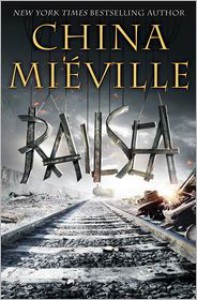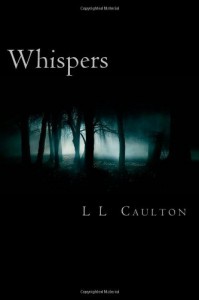Novel Tease
Random meanderings about the books I love—or don't.
Interspersed with observations about my hobbies: Beer & Wine, Bridge, Bikes and Bow-wows.

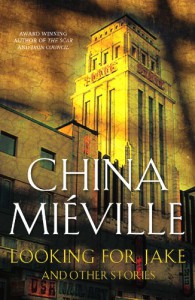


I loved the idea of humanity in an ages-long struggle with demons that rise out of the earth, able to survive only in islands of protection (similar in some ways to [author:Barbara Hambly's] [book:Darwath Trilogy|438119]), but are we ever going to learn how it's possible that humanity could even arise in this situation, or how it's possible that any creatures outside human "wards" survive, now?
Shaman, Healer, Heretic (Olivia Lawson Techno-Shaman)
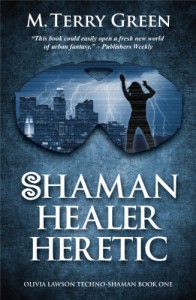
The Magekiller

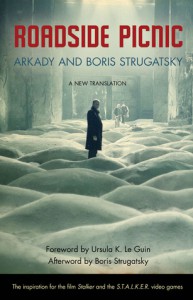
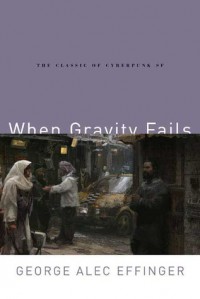
I was pretty amazed at Effinger's clairvoyance. He was merely a little pessimistic about how long the technological and cultural changes he envisioned would take to occur.
Marid, the protagonist, was born in 2172 — shortly after the collapse of both the Soviet Union and the United States. It's interesting to remember that in the year of publication (1987), there really wasn't a hint that the Soviet Bloc would start to collapse in just two more years.
Technologically, much of what we see in this book has either already come about, or seems like a likely continuation of trends. Culturally, the setting in a Middle-Eastern, Arabic, city, where the zealots hope to take advantage of the collapse of the superpowers to spread Islam, sounds terribly familiar. The Balkanization of Europe, had already begun when Effinger wrote the story, so expecting the change to continue isn't surprising. It all seems possible within my own lifetime.
Unfortunately, the story itself isn't as strong. Enjoyable, but not enough so that I'll seek out the second and third volumes.

For a journalist, Michael Rank's written English is pretty poor, though that unfortunately is pretty much the state of journalism today. The most egregious error being that Muhammed <i>"taught his followers the major tenants of the religion."</i> "<b>Tenets</b>", dammit! He's also inconsistent in the use of the prophet's name. The cover says <i>"From Muhammed to Burj Khalifa…"</i> while the title page gives: <i>"From Muhammad…"</i>
I'm uncomfortable about the way he addresses Islam in places. Why does Rank use deliberately provocative language like <i>"After claiming to receive a prophecy from God"</i>, when talking about Muhammed? <i>"After receiving a prophecy…"</i> would be palatable to Muslims and non-believers alike. Or, "<i>he also stated that pagans and unbelievers cannot approach the Sacred Mosque, a statement which the Saudi Arabian Grand Mufti used in March 2012 as a pretext to call for all churches in the Arabian peninsula to be bulldozed."</i> Given that he doesn't explain this statement at all, it merely appears intended to show the irrationality of Islam.
Still, this book does almost exactly what it promises: <i>"By the end you will know as much about the Middle East as you would after a year-long college course [and] sound highly knowledgeable about worrd affairs to your friends and associates."</i> The first claim is arguable — I learned more about the

One of my huge turn-offs in mysteries, thrillers (and horror movies), is protagonists who do stupid things just to further the plot. Why do they put themselves in danger, rather than just calling the police? But here, it all makes sense. Our hero is a high-school student, isolated even more than your average teenager by the need to care for her mother, who has Multiple Sclerosis. Every time I thought, "why would you do something so boneheaded?", I'd think back to my own (much easier) adolescence, and remember that (a) I did some pretty stupid things; and (b) I would never have dreamed of asking an adult for help to get out of the inevitable consequences!
Ultimately, this story is all about how children become adults, learn that they need to form relationships (of many kinds — Janus forms deeper bonds with her mother, her mother's boyfriend, boys, and even Authority), and learn to take responsibility.
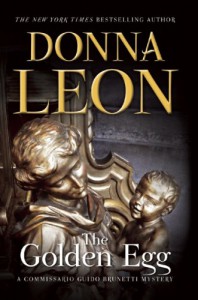 Brunetti "still remained surprised at how few people read. He read, Paola read, the kids read, but he realized how seldom he talked about books or found a person who appeared to take a serious interest in them."
Brunetti "still remained surprised at how few people read. He read, Paola read, the kids read, but he realized how seldom he talked about books or found a person who appeared to take a serious interest in them."Thankfully, we have GoodReads….






